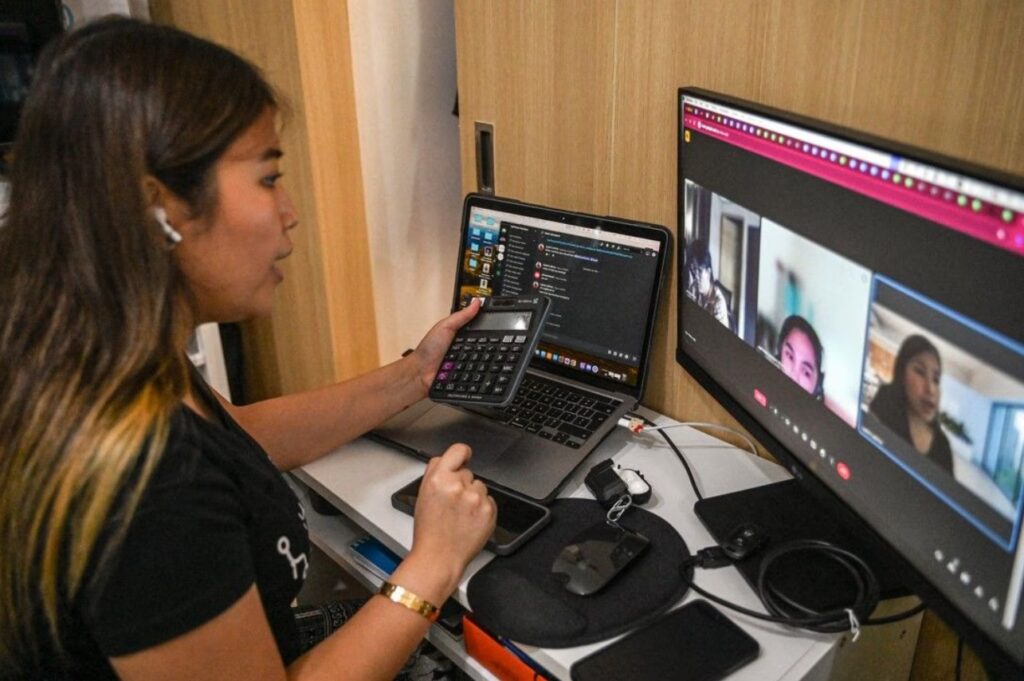In September 2025, the Philippine economy continued to grow through digital innovation and global trade, making hiring office staff a critical decision for businesses. With a labor force of over 48 million, demand for roles such as administrative aides, data processors, and HR specialists has risen alongside BPO expansion. Companies choosing between local and foreign staff must weigh regulatory requirements, costs, and benefits. Local recruitment offers affordable rates—starting from PHP 645 daily minimum wage in Metro Manila—and provides skilled, English-fluent workers familiar with cultural and legal frameworks. By contrast, hiring foreigners requires compliance with the Bureau of Immigration’s 9G visa and DOLE’s Alien Employment Permit, adding expense and bureaucracy but granting specialized expertise. Understanding these differences is essential for compliance, integration, and efficiency. Recruitment agencies and workforce providers like Out Task support businesses in navigating office staff hiring in the Philippines, balancing local strengths and foreign expertise.
Navigating the Philippine Job Market for Office Positions
The Philippine job market for office roles in 2025 presents a competitive yet opportunity-rich environment, shaped by hybrid work trends and technological integration, demanding adaptable administrative professionals. With unemployment at about 4.5 percent and a youthful demographic pursuing entry-level jobs, employers encounter talent abundance and selection challenges. This section examines key dynamics, from trends to sourcing strategies, showing how local policies and global factors influence recruitment.
- Market Trends and Demand Drivers: According to the Bureau of Labor and Employment Statistics, office vacancies have risen 12 percent annually, driven by the BPO industry’s PHP 2.5 trillion GDP impact. Positions such as virtual assistants and compliance officers dominate, with 70 percent requiring skills in Microsoft Office and CRM systems. Regional variations exist; Metro Manila holds 60 percent of openings, while areas like Cebu face infrastructure limitations, encouraging the use of nationwide job platforms.
- Sourcing Channels and Recruitment Agencies: Blending traditional ads in outlets like BusinessWorld with digital sites like LinkedIn and Jobstreet, where over 5,000 office jobs were listed in September 2025. Workforce agencies manage 40 percent of placements, providing screened candidates to cut hiring time from 45 to 20 days. Employment agencies excel in matching office staff job descriptions focused on multitasking and accuracy.
- Challenges in Talent Acquisition: Skill gaps in areas like analytics affect 25 percent of hires, contributing to 18 percent first-year turnover. Wage demands average PHP 25,000 monthly for mid-level roles amid inflation, plus inclusivity mandates under Republic Act 11210 for disabled persons.
- Strategic Implications for Employers: Choosing local vs. foreign workers depends on these trends; locals ensure quick alignment, but foreigners address niches in fintech. High application volumes—over 200 per post—burden HR, favoring recruitment agency partnerships.
This snapshot highlights the market’s potential alongside logistical demands, paving the way for detailed requirements and processes that prove overwhelming without aid.
Essential Requirements for Hiring Local Office Staff
Hiring local office staff in the Philippines requires strict compliance with qualifications, paperwork, and fit evaluations to align with the Labor Code’s worker protections. Amid varying regional wages and benefit obligations, this section details core elements, illustrating the heavy administrative load that often surpasses individual handling capacity.
- Educational and Experience Thresholds: Typically, a bachelor’s degree in business or related fields is needed, plus 6-12 months of experience for starters. Specialized roles demand certifications in project management or HR tools, as seen in 65 percent of 2025 Jobstreet ads. Verification via the Commission on Higher Education involves checking transcripts to curb fraud in flooded applicant pools.
- Pre-Employment Documentation and Clearances: NBI clearance, barangay certificates, and medical reports are mandatory under Department Order No. 174-17, valid for six months and causing two-week delays. Proof of eligibility for PhilHealth and SSS ties into benefits like 13th-month pay and leave entitlements.
- Skills and Competency Assessments: Practical tests evaluate communication, including typing at 40 words per minute and behavioral interviews. English proficiency, vital for 90 percent of roles, prefers TOEIC scores over 700, and is often outsourced for thoroughness.
- Compliance with Labor Standards: Non-discrimination under Republic Act 10911 requires inclusive postings, with wages at PHP 645 daily in NCR. Violations risk PHP 100,000 fines from DOLE inspections.
These demands protect rights but create a paperwork-intensive barrier, suggesting reliance on workforce agencies for efficiency.
Legal and Visa Requirements for Employing Foreign Talent
Employing foreign talent for office roles in the Philippines entails a complex web of immigration and labor rules to safeguard local jobs. The 9G visa, with 2025 updates for stricter reviews, is centered on this setup. This setup imposes significant administrative demands, from applications to endorsements, often prolonging timelines.
- Alien Employment Permit (AEP) Prerequisites: DOLE requires evidence of no local alternatives via 15-day ads or postings. Includes job details, salaries 2.5 times minimum, and CVs, with PHP 1,000 fees and 2-4 week processing. Breaches lead to deportation and up to PHP 10 million fines.
- 9G Pre-Arranged Employment Visa Essentials: Post-AEP, BI needs contracts, valid passports, and home-country clearances. DTI endorsements for multinationals involve hearings and biometrics and extend to 2-3 months. New 2025 rules add background checks for fresh applicants.
- Additional Documentation and Restrictions: Overseas certificates, annual ACR I-Cards at PHP 2,000, and restrictions on non-supervisory roles under the Retail Trade Act prioritize locals.
- Health and Financial Assurances: BI-accredited medicals, PHP 40,000 insurance, and repatriation bonds ensure security but increase documentation.
Multiple agencies like DOLE and BI form a compliance labyrinth, necessitating expert help to prevent errors.
The Step-by-Step Process of Local Staff Recruitment
Local staff recruitment in the Philippines follows a methodical, Labor Code-guided sequence emphasizing fair practices and clear contracts, turning it into a demanding multi-step task involving HR, legal, and finance coordination.
- Job Posting and Sourcing: Create compliant ads under RA 10911, posted on platforms like Indeed for 15 days, attracting 100-300 applicants. Tracking systems are used for initial filtering based on qualifications.
- Screening and Interviews: Phone vets 20-30 percent, followed by panels using STAR for competencies. Backgrounds and drug tests add 5-7 days, per DOLE standards.
- Offer and Contract Execution: Draft contracts with probation, pay, and benefits, signed within 48 hours, starting SSS obligations under 2025 rules.
- Onboarding and Orientation: Set up payroll with BIR, issue IDs, and train on privacy laws, with 30-day integration monitoring.
Interlinked steps mean delays cascade, highlighting the taxing nature without support.
The Complexities of the Hiring Process for Foreign Workers
The hiring process for foreign workers in the Philippines demands intricate international coordination. Visa and labor laws create detailed requirements prone to denials, stressing the need for professional assistance given the high stakes of revocations.
- Pre-Application Feasibility Assessment: Assess needs against locals via DOLE tests and impact reports, taking 10-15 days with economic data.
- Permit and Visa Application Cascade: Submit AEP to DOLE, then BI visas with apostilled docs and virtual hearings, tracking online for 90+ days.
- Relocation and Integration Logistics: Handle travel, housing, orientations, synced with I-Cards, health checks, and BIR IDs.
- Ongoing Monitoring and Renewal: Annual renewals with reviews and exit plans, including affidavits.
These layers clarify the importance of seeking Out Task’s help because the process is complicated and often beyond one person’s scope. As a trusted provider of staff recruitment in the Philippines, Out Task uses its Employer of Record approach to manage visas, filings, and onboarding expertly, protecting your business.
Weighing Costs, Compliance, and Long-Term Benefits
Comparing local and foreign workers in the Philippines involves analyzing expenses, regulations, and gains. Adjustments in wages and remote work policies for 2025 drive key decisions in sustainable office staffing.
- Financial Breakdowns: Locals cost PHP 20,000-35,000 monthly plus 13.5 percent benefits, 50-70 percent less than foreigners’ PHP 80,000+ with PHP 100,000 relocations and PHP 50,000 visas.
- Compliance Imperatives: Locals need quarterly BIR and annual SSS audits with digital submissions; foreigners add BI reports and anti-trafficking certs, risking PHP 1 million fines.
- Strategic Advantages: Locals offer cultural fit and 30 percent faster ramps with retention perks; foreigners bring diversity but face visa-related turnover.
- Risk Mitigation and Scalability: Locals support national policies, and foreigners boost competitiveness. Both need strong termination contracts.
This analysis requires deep planning, often exhausting without agency expertise.
Final Insights
Summarizing hiring office staff in the Philippines reveals a landscape where local accessibility contrasts with foreign hurdles, demanding balanced strategies in regulations and costs. Businesses thrive by adapting to these elements, leveraging allies for success.
Is Assistance Available?
Yes, Out Task stands ready as a trusted provider of comprehensive recruitment and Employer of Record services, expertly managing the complexities of compliance, visas, and onboarding to ensure your hiring office staff initiatives succeed without the overwhelm. Reach out today to schedule an initial consultation with one of our experts.
- Contact Us Here
- Fill Out the Form Below
- Send an email to: info@outtask.ph



